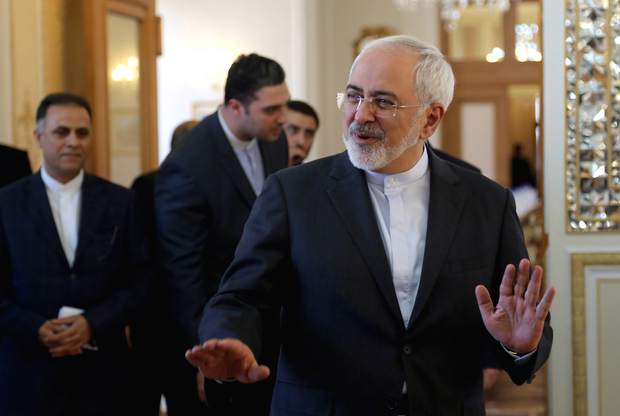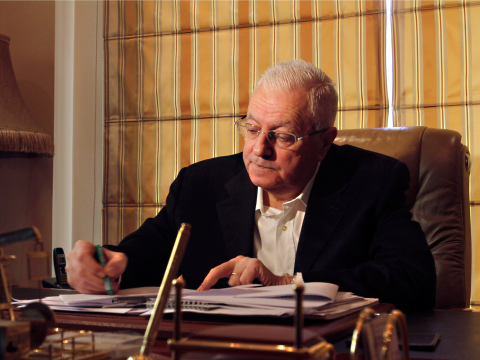Uncle Sam Says Talk to the Hand (of Justice): No Lobbying for SDNs
 This week two individuals from Chicago were arrested for violations of the Zimbabwe sanctions, when they allegedly lobbied on behalf of Zimbabwean President Robert Mugabe without a license from the United States Department of the Treasury’s Office of Foreign Assets Control (OFAC). As the facts have been widely reported, there is no need to reiterate them here. All that needs to be stated is that two U.S. persons are accused of conspiring to offer lobbying services to an OFAC Specially Designated National (SDN) in order to have that SDN removed from the OFAC SDN List. Nothing alleged in the criminal complaint suggests that these individuals were furthering the actions and policies of the Government of Zimbabwe and other persons to undermine Zimbabwe’s democratic processes or institutions, were committing acts of violence or other human rights abuses against political opponents, were engaging in public corruption, or misusing public authority. In short, the activities of the two men charged, Prince Ariel Ben Israel and C. Gregory Turner, could not have served as a basis for designation under Executive Orders 13469, 13391, or 13288. As such, their activity was not necessarily in contravention of the spirit of those particular Executive Orders which serve as the foundation of the Zimbabwe sanctions program. However, by allegedly providing services, to someone who is blocked under those Executive Orders (i.e., Robert Mugabe), Mr. Ben Israel and Mr. Turner, find themselves on the wrong side of a criminal prosecution initiated by the Department of Justice.
This week two individuals from Chicago were arrested for violations of the Zimbabwe sanctions, when they allegedly lobbied on behalf of Zimbabwean President Robert Mugabe without a license from the United States Department of the Treasury’s Office of Foreign Assets Control (OFAC). As the facts have been widely reported, there is no need to reiterate them here. All that needs to be stated is that two U.S. persons are accused of conspiring to offer lobbying services to an OFAC Specially Designated National (SDN) in order to have that SDN removed from the OFAC SDN List. Nothing alleged in the criminal complaint suggests that these individuals were furthering the actions and policies of the Government of Zimbabwe and other persons to undermine Zimbabwe’s democratic processes or institutions, were committing acts of violence or other human rights abuses against political opponents, were engaging in public corruption, or misusing public authority. In short, the activities of the two men charged, Prince Ariel Ben Israel and C. Gregory Turner, could not have served as a basis for designation under Executive Orders 13469, 13391, or 13288. As such, their activity was not necessarily in contravention of the spirit of those particular Executive Orders which serve as the foundation of the Zimbabwe sanctions program. However, by allegedly providing services, to someone who is blocked under those Executive Orders (i.e., Robert Mugabe), Mr. Ben Israel and Mr. Turner, find themselves on the wrong side of a criminal prosecution initiated by the Department of Justice.
The prohibitions on provision of lobbying services to sanctioned targets is an issue that I have studied quite a bit and one which has accounted for countless hours of debate in our office. The discussion usually revolves around the question of why lobbying is not authorized under the general license authorization for provision of certain legal services (31 CFR 541.507). That authorization permits legal services to be provided to parties blocked pursuant to the Zimbabwe sanctions, so long as payments for those services are specifically licensed by OFAC. So lobbying must not fall under one of the certain categories of legal services right? Well, from OFAC’s perspective it doesn’t, but look at the language of 31 CFR 541.507(b)(4), which allows for “Representation of persons before any federal or state agency with respect to the imposition, administration, or enforcement of U.S. sanctions against such persons.” This language could be construed to suggest that lobbying may be an option as a generally authorized legal service.
The problem here, however, is that OFAC doesn’t view Congress or State legislatures as constituting “agencies” despite the fact that at some legal Congress has to provide the legal authority under which sanctions are imposed. As such, neither OFAC, nor the Executive Branch wants lobbyists pushing for the removal of SDNs before members of the legislative branch, although, lawyers can represent those same SDNs in such matters before federal and state agencies involved in the administration of sanctions. There is nothing in the criminal complaint to indicate that these two gentlemen were lawyers or believed themselves to be providing legal services.
It seems that the current criminal complaint against Ben Israel and Turner has put the debate to rest. Lobbying on behalf of SDNs is a no-no without an OFAC license. While there is some language in the legal services authorization which states that any legal services outside of the specifically enumerated categories requires specific licensing, don’t think those licenses are easily granted. My reason for saying this is that I have previously applied on behalf of client for such a license. That license was denied.
The truly scary question here though is when does “representation of persons before any federal or state agency with respect to the imposition, administration, or enforcement of U.S. sanctions against such persons”, switch from authorized legal service to lobbying? There is no bright line rule and it certainly an area in which OFAC should offer more guidance. However, in off the record conversations I have had with certain folks who are in the know, the line is crossed when a party goes up on the Hill and starts speaking to members of Congress. As such, if you are going to be representing an SDN in a removal case make sure of two things: 1) you’re a lawyer, and 2) you’re only speaking to certain executive agencies (i.e., OFAC, some offices at State, National Security Council, etc.) about that SDN.
The author of this blog is Erich Ferrari, an attorney specializing in OFAC matters. If you have any questions please contact him at 202-280-6370 or ferrari@ferrariassociatespc.com.



